BEAD AND HAIRPIPE BANDOLIERS
Men’s bead and hairpipe bandoliers are common to a variety of Tribal traditional clothing styles. A number of design options are available using the same stringing techniques. The exact design are the option of the maker and can be made with a selection of beads, bone or plastic hairpipe, leather spacers, and simulated sinew.
Make up a plan of color and bead/bone combination and test the length by stringing a single strand. Normally the strands draped over one sholder should come together at the waist on the hip oposite that sholder. After determining the pattern and number of beads and bone for the length, decide the number of strands. Figure 1 shows a two strand plan. Figure 2 is a single strand pattern that needs only one spacer. Our photos shows a three strand pattern.
In Figure 1, the plan is to have 11 two-hole leather spacers and one four-hole spacer at the hip. Figure 2 is a simpler design. A single strand requires only the one two-hole leather spacer at the hip. The spacers are made of strap leather cut 1/4 inch wide. If the hairpipe you are using is plastic, plan to make the spacer holes 1/2 inch apart. (A four-hole spacer for plastic would be 1/4 by 2 inches.) If using narrower real bone hairpipe, the distance will be shorter, closer to 3/8 inch apart.
The last items to plan are the pendants at the strand ends. Figure 3 shows a design that uses metal cones and ribbon or leather thong fringe. Figure 4 shows a yarn tassel that was commonly used in the Great Lakes area. Other items used for pendant ends were thimbles and coins. Holes need to be drilled in those before using.
A double strand of simulated sinew (a waxed stranded thread) is used to string the beads, bone and spacers into your pattern. Cut a double length of sinew and loop in half over a 10 inch piece of wire also folded in half to form a needle. See Figure 5. Use this wire to thread through beads and hairpipe. Start each strand by tying the loose end of sinew into the pendant first and end by tying in the last pendant.
Copyright: 2005 by Loren Woerpel, Noc Bay Publishing, Inc.
Last Updated on November 24, 2019 by Paul G
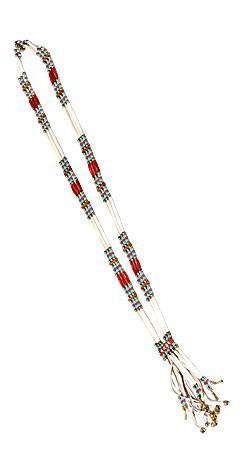
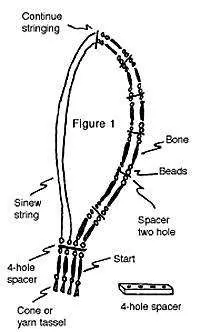
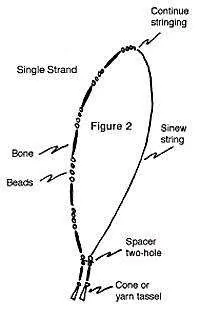
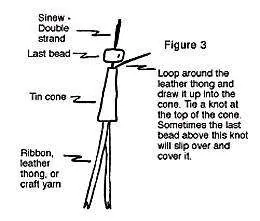
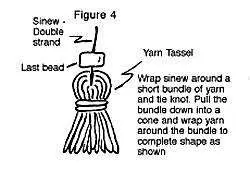



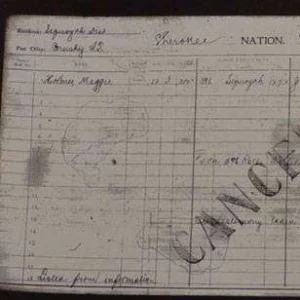
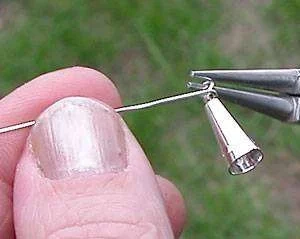
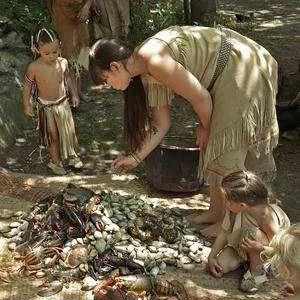
Tim
says:Will have to try this, I believe I have everything already from another project.
willow
says:awesome…always wanting tolearn…will try 2 make…Thanx
Cecilia
says:Love this Thank You!
Cecilia
says:This is Beautiful.. Thank you so much for sharing how to make this n hope you have more to share.
dusty conner
says:Just love all this good, rich history of real life.